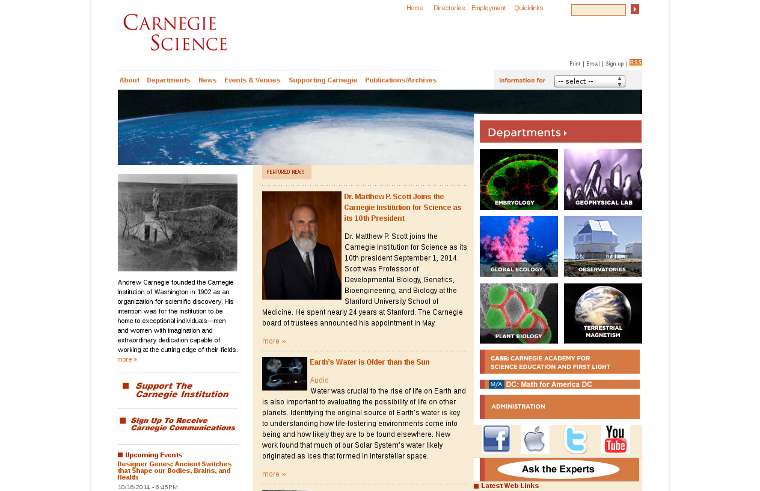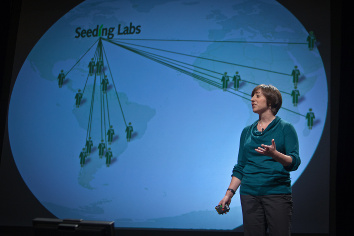The Carnegie Institution for Science exists to support research in the life, earth and space sciences. The organization is world-renowned for science research, as it has helped spur some of the most important scientific discoveries in the last century. Notable members include Edwin Hubble and his discovery that the universe is ever expanding and Charles Richter who created an earthquake measurement scale. Andrew Carnegie founded the Carnegie Institution of Washington in 1902 as an organization for scientific discovery. Today, Carnegie scientists work in six scientific departments on the West and East Coasts. The institution remains officially and legally the Carnegie Institution of Washington, but now has a public identity that more clearly describes their work. Carnegie investigators are actually leaders in the fields of plant biology, developmental biology, Earth and planetary sciences, astronomy, and global ecology. They seek answers to questions about the structure of the universe, the formation of our solar system and other planetary systems, the behavior and transformation of matter when subjected to extreme conditions, the origin of life, the function of genes, and the development of organisms from single-celled egg to adult.  Web site: http://carnegiescience.edu/
Web site: http://carnegiescience.edu/
A space for discoveries
![]()
STAY IN TOUCH
SUBSCRIBE TO OUR NEWSLETTER
AND RECEIVE OUR LATEST STORIES
OLBIOS NETWORK FOR ACTION










